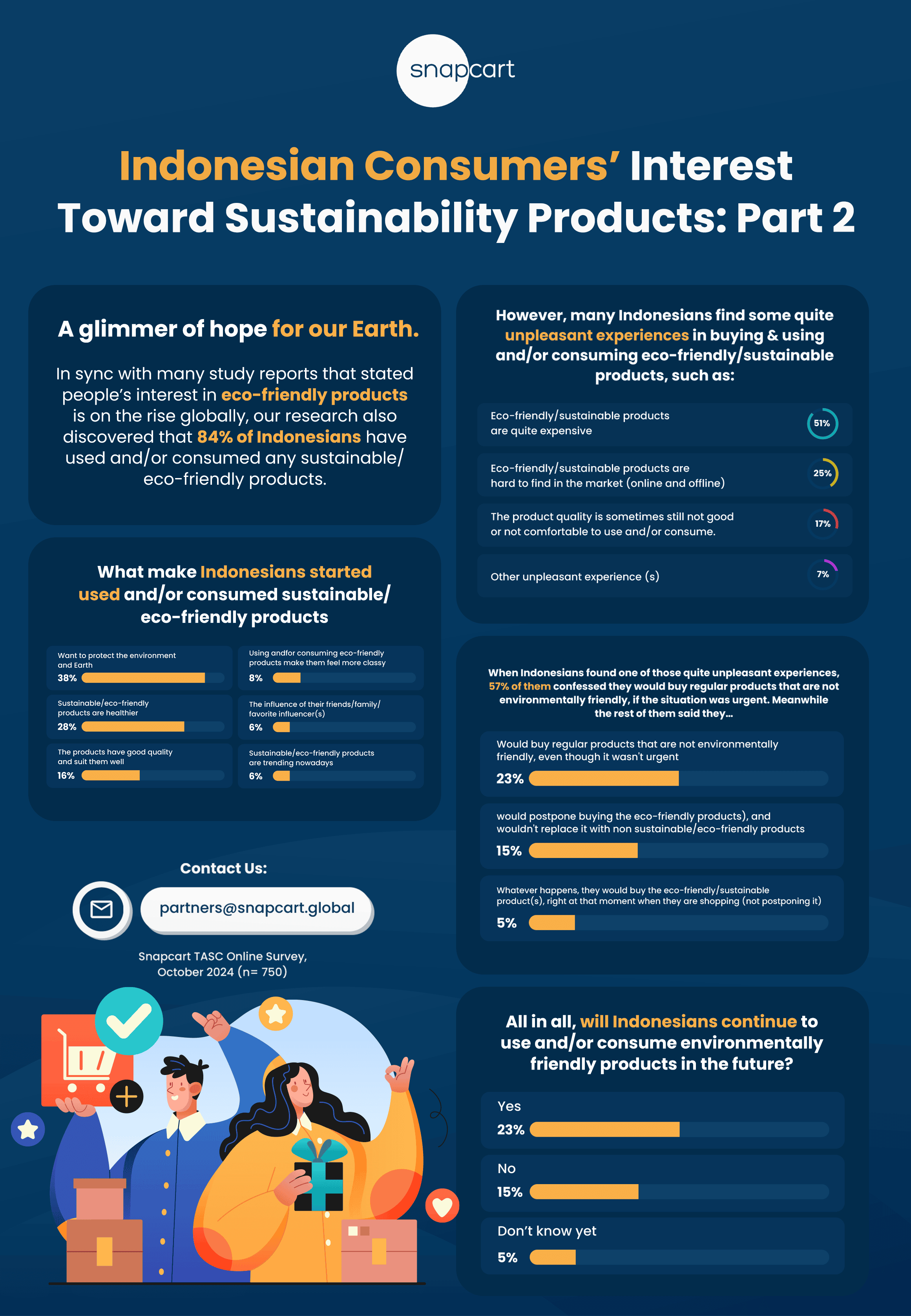As the world becomes more aware of environmental concerns, the demand for sustainable products is rising.
Our study has revealed that 84% of Indonesians have already adopted sustainable or eco-friendly products, reflecting a significant shift towards more conscious consumption. This insight sheds light on the driving forces behind this trend and the obstacles Indonesian consumers face when purchasing eco-friendly products, as you can check on the infographic below.

What Drives Indonesian Consumers to Choose Sustainable Products?
This research discovered several factors that encourage Indonesians to embrace eco-friendly products, such as:
- Environmental Concern (38%): Many Indonesians are driven by a desire to protect the Earth. They recognize the importance of their purchasing decisions in mitigating environmental harm.
- Health Benefits (28%): Eco-friendly products are often perceived as healthier options, which boosts their appeal to health-conscious consumers.
- Product Quality (16%): A significant portion of consumers finds that sustainable products have good quality, making them worth purchasing.
- Trend Influence (6%): Eco-friendly products are trending, influenced by friends, family, and media.
Additionally, some consumers (8%) feel that using such products enhances their social status, making them appear classier.
Challenges in Adopting Eco-Friendly Products
Despite the growing interest, many Indonesians encounter challenges when purchasing eco-friendly products:
- High Costs (51%): The most significant barrier is price, as eco-friendly products tend to be more expensive than regular options.
- Limited Availability (25%): These products can be hard to find, both online and offline, which discourages some consumers from making sustainable choices.
- Quality Concerns (17%): While many believe in the quality of eco-friendly products, some feel that certain options don’t meet their expectations.
These challenges lead to unpleasant experiences, causing hesitation among some consumers when it comes to sustainable purchases.
Nevertheless, interestingly, when Indonesian consumers face difficulties with eco-friendly products, 57% admit that they would revert to regular products, especially in urgent situations. On the other hand, the remaining responses provide more insight into their behavior:
- 23% would buy regular products even when not urgent.
- 15% would postpone purchasing eco-friendly products without substituting them with non-sustainable alternatives.
- 5% would still buy eco-friendly products despite the challenges.
Will Indonesian Consumers Continue to Buy Eco-Friendly Products?
Looking ahead, this research survey indicates a mixed outlook on the future of sustainable product consumption in Indonesia:
- 23% are committed to continuing their eco-friendly purchases.
- 15% are unsure and may stop buying these products in the future.
- 5% are still undecided, reflecting a degree of uncertainty about the long-term sustainability trend.
With 84% of Indonesians having tried sustainable products, there’s clear momentum toward eco-friendly consumption. However, some factors like cost, availability, and product quality still pose challenges. Brands focusing on sustainability in Indonesia need to address these pain points to maintain and grow consumer interest.
For more insights into Indonesian consumer behavior, contact us at partners@snapcart.global .





